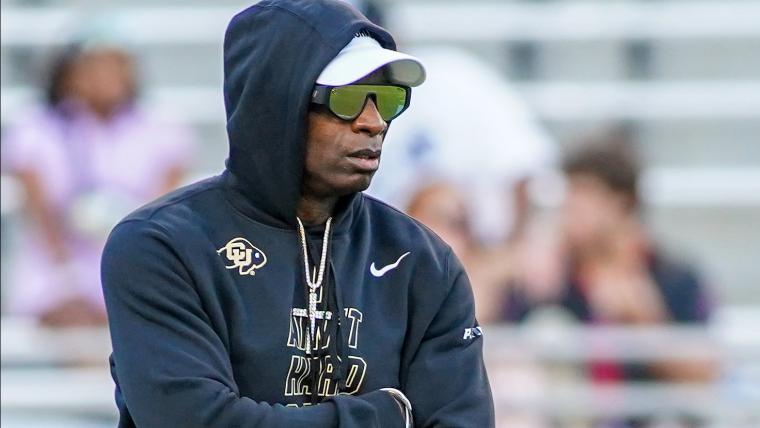Health Struggles and Coaching Challenges
This season has proven to be particularly challenging for the Colorado Buffaloes, marking a stark departure from the expectations set during the previous year. As the team navigates its first season without quarterback Shedeur Sanders and star player Travis Hunter, the struggles have been palpable. The pressure on head coach Deion Sanders has intensified, especially in light of his ongoing health issues, which have cast a shadow over his coaching performance.
A Summer of Uncertainty
During the summer, Deion Sanders was uncharacteristically reticent about his health. When pressed by reporters, he stated, “I’m really not going to tell you much. I’m not going to talk about my health. I’m living good. I’m living lovely. Not a care in the world.” However, behind this facade of normalcy lay grave concerns. As the weeks progressed, Sanders’ condition deteriorated to a point where he was compelled to confront his mortality, even drafting a will—an emotionally taxing exercise for anyone, especially a vibrant sports figure like him.
The Revelation of Blood Clots
Recently, Deion Sanders faced alarming signs of a serious medical condition: he noticed himself limping on the sideline during games, a clear indicator that something was wrong. Following the game, he opened up about his struggles, stating, “Cat’s out of the bag, all right. I think I’ve got more blood clots… I’m hurting like crazy. … I’m not getting blood to my leg. That’s why my leg is throbbing.” This candid admission shocked both fans and colleagues, revealing the extent of his suffering.
Impact on Coaching Career
These health issues not only illustrate a personal struggle but also raise questions about Sanders’ future as head coach of the Buffaloes. With a disappointing 2-4 record in his third season, the combination of poor performance and health problems creates a precarious situation. He has historically refrained from using his condition as an excuse, but the reality looms large: his well-being is at serious risk, and it is beginning to intersect with his coaching responsibilities. Reports, including one from USAToday, suggest that family history with blood clots adds another layer of complexity to his situation.
The Emotional Toll
Deion Sanders has always been known for his resilience, and while he has tried to keep his health struggles private, the mental and emotional toll is evident. Facing fears of his own mortality has not been easy; the dichotomy between his public persona and private anguish speaks volumes about the pressures of leadership. As he continues to navigate his health challenges, one must wonder how long he can sustain this dual burden without compromising his effectiveness as a coach.
Questions for the Future
The intersection of health issues and professional obligations raises difficult questions about the sustainability of Deion Sanders’ coaching career. If blood clots indeed require extended recovery time, he may be faced with tough choices about stepping back from coaching duties. As he weighs his options, the narratives around his tenure will inevitably shift—will his legacy be one of triumph, or will health insecurities overshadow his contributions to the sport?
Community Challenges
This season is not merely a test of the Buffaloes’ football capabilities but also a broader examination of how the community supports its leaders during trying times. Coach Sanders may be a central figure, but his well-being resonates with countless individuals facing their own health challenges. The way the team and fans rally around him in these moments will shape the narrative surrounding not just the season but also the community as a whole.



